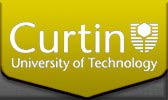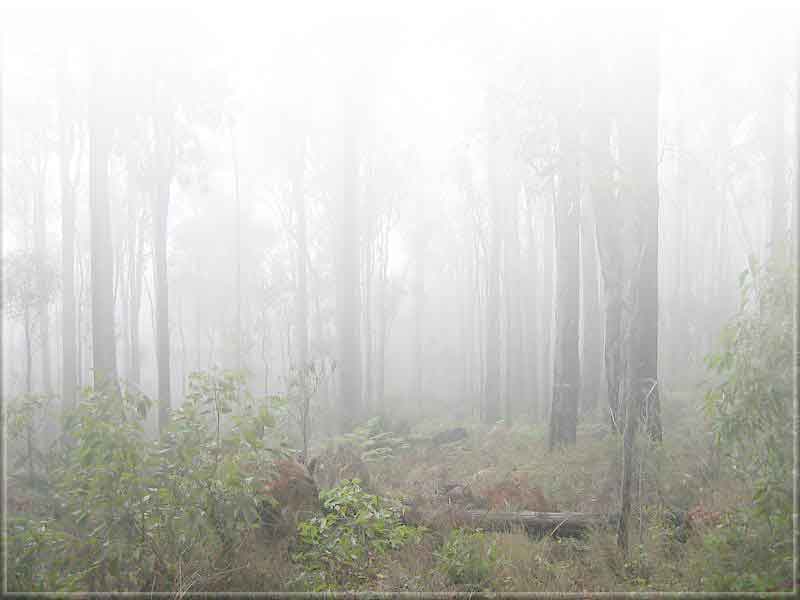Centre for Ecosystem Diversity and Dynamics Researcher Profiles
A complete list of the research staff working in the Centre of Ecosystem Diversity and Dynamics can be found below. Each researcher has key fields of research interest. Potential Clients and Partners are encouraged to get in contact with the research staff for a given field of interest. Each staff member has a full profile accessable by clicking on their name.
Prof. Byron Lamont - Director
BSc, Hons, PhD, DSc email phoneclick for the full profileclick to hide full profileKey Research Fields: Environmental Ecology, Herbivory, nutrition by plants, the ecology of grasstrees, biodiversity and function of ecosystems, conservation requirements of banksias, and physical deterrents to herbivory, management requirements for exploited wildflowers
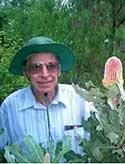
- Current Position:
- CEDD Director (2006)
- Personal Chair (1996)
- Qualifications and Experience:
- PhD (UWA 1974)
- DSc (UWA 1993)
- academic for 35 years
- 40 years research experience on plant ecology of Australia, South Africa and California
- Senior Fulbright Fellow 1987
- Erskine Fellow (NZ) 2002
- Research Interests:
- Lamont has been studying the ecology of the southwestern Australian biota since 1969. Since 1985, his work with 10 postdoctoral fellows, 12 visiting fellows, numerous research students and staff, and less formal contacts with colleagues, has resulted in 200 papers, mostly in the world’s leading ecological journals. He has had over 1500 citations since 1992 and is recognized as the most highly cited researcher at Curtin University. His paper, lead-authored by his Honours student, Anthea Jones, on the role of essential oils in deterring kangaroo herbivory, was the third most downloaded paper in the Journal of Chemical Ecology for 2003. Lamont has lead-authored major reviews on specialized modes of nutrition by plants, the ecology of grasstrees, biodiversity and function of ecosystems, conservation requirements of banksias, and physical deterrents to herbivory. Lamont et al (2000) provided the first complete analysis of the management requirements for an exploited wildflower (Banksia hookeriana) in Australia, involving 13 years of measurements. He is currently working on projects funded by the Australian Research Council, Iluka Resources and Department of Conservation and Environment involving genotyping techniques to gauge long-distance dispersal, higher animals as long-distance dispersal agents, fire management of heathlands, deterring kangaroos from feeding on young plants, mechanisms explaining the high diversity of the heathlands, and fire responses of post-mined lands.
- Industry/Community links:
- Alcoa World Alumina
- Chemistry Centre (CCWA)
- Iluka Resources
- Worsley Alumina
- Kings Park and Botanic Gardens
- Whiteman Park
- University of Melbourne
- Potsdam University (Germany)
- University of Port Elizabeth (South Africa)
- Contact Details:
- email: B.Lamont@curtin.edu.au
- phone (Aus): (08) 9266 7784
- phone (Int): +618 9266 7784
Dr. Philip Groom - Secretary
BSc, Hons, PhD. email phoneclick for the full profileclick to hide full profileKey Research Fields: Plant adaptations, Plant Ecology, Plant Physiological Responses
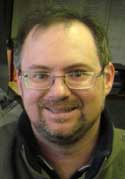
- Current Position:
- CEDD Secretary
- Lecturer (Plant Ecology and Ecophysiology)
- Qualifications and Experience:
- PhD (Curtin)
- 9 years postdoctoral experience (Curtin, Edith Cowan University, University of Western Sydney)
- Research Interests:
- My research interests are varied, but revolve around three themes: 1) plant adaptations to their environment and growing conditions, 2) plant ecology, and 3) the physiological response of plants to their environment in which they live. By understanding the adaptive significance of plant traits and responses to their growing environment it is possible to categorise species into ecological functional groups. These groups can then be used to predict how plant species will cope with significant changes in environmental conditions (e.g. increased summer drought, higher summer temperatures). Currently I am interested in characterising the plant water use of Banksia woodland species according to hydraulic functional groups.
- Industry/Community links:
- Department of Environment and Conservation
- Whiteman Park
- Forest Product Commission
- Shire of Busselton
- Centre for Plant and Food Science (Uni. Western Sydney)
- Contact Details:
- email: P.Groom@curtin.edu.au
- phone (Aus): (08) 9266 7921
- phone (Int): +618 9266 7921
Key Research Fields: herbivory, chemical ecology, macropod behaviour, rangeland management and keystone predators
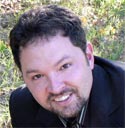
- Current Position:
- Research Fellow
- Qualifications and Experience:
- PhD (Curtin)
- 2 year postdoc experience (Curtin)
- Research and Learning Profile:
- Dr. Parsons’ research consists of observational accounts, descriptive research and experimental manipulation of animal-plant interactions- the most fundamental components of the food chain. He currently focuses on the impact of native and introduced fauna on rehabilitated landscapes previously affected by mining, fire and urbanization. Herbivores act as conduits for seed dispersal and contribute to the replenishment of soil nutrients, however selective herbivory may contribute to loss of species richness, evenness and topsoil loss, particularly in the absence of predators.
Theoretical foci includes investigating a mathematical index for herbivory and mechanisms for understanding consumer patch selection in space. Applied interests include the conservation of rare species and mechanisms for herbivore deterrence. An ancillary project regarding the ecology of fear (herbivores and predators) has resulted in international attention.
In the first year following his PhD, Dr. Parsons developed an extramurally funded program with seven financial partners. Multi-disciplinary synergies developed as a result of this collaboration with industry, stake-holders, significant interest groups and academics in both the sciences and humanities. His relentless effort earned $2 million over the last three years to support this team’s work.
With a post graduate degree in Curriculum, Dr Parsons also has strong interest in teaching and learning. As someone who identifies himself as thinking ‘outside the box’, his teaching philosophy incorporates trends in psychology and science education to adapt lectures to multiple intelligences- including video, sounds and live demonstrations.
As opposed to the more traditional ‘didactic’ approach to lecturing, he has adapted the approach of motivator, mentor and facilitator. In order to better reinforce the lecture material, he is considerate in relating lectures to laboratory and field observations. He views the class room assessment as an opportunity to continue and apply the investigation process, rather than to strictly gauge what has been memorized.
Future work projects include foci on consumer patch selection in space (patch geometry), and the impact of indirect predator cues (landscape ecology) on prey. He hopes to lecture behavioural ecology and animal-plant interactions courses.
- Dr. Parsons’ research consists of observational accounts, descriptive research and experimental manipulation of animal-plant interactions- the most fundamental components of the food chain. He currently focuses on the impact of native and introduced fauna on rehabilitated landscapes previously affected by mining, fire and urbanization. Herbivores act as conduits for seed dispersal and contribute to the replenishment of soil nutrients, however selective herbivory may contribute to loss of species richness, evenness and topsoil loss, particularly in the absence of predators.
- Industry/Community links:
- Alcoa World Ilumina
- Barrick Gold
- Chemistry Centre (CCWA)
- Iluka
- Greening Australia
- Worsley
- Contact Details:
- email: M.Parsons@curtin.edu.au
- phone (Aus): (08) 9266 7907
- phone (Int): +618 9266 7907
Dr. Christine Cooper
BSc, Hons, PhD. email phoneclick for the full profileclick to hide full profileKey Research Fields: Vertebrate ecophysiology (metabolism, water balance, body temperature regulation, and digestion)
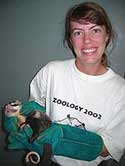
- Current Position:
- Lecturer
- Qualifications and Experience:
- BSc (Hons) Zoology
- PhD (UWA)
- Post Doc (UNE)
- Research Interests:
- Christine’s research discipline is vertebrate ecophysiology. In particular she is interested in metabolism, water balance, body temperature regulation and digestion in birds and mammals. Specific research projects include the metabolic ecology of cockatoos, numbat physiology, water balance in marsupials, torpor in birds and mammals and physiological responses to olfactory cues.
- Industry/Community links:
- DEC
- UWA
- Perth Zoo
- Contact Details:
- email: C.Cooper@curtin.edu.au
- phone (Aus): (08) 9266 7965
- phone (Int): +618 9266 7965
Prof. Jonathan Majer
BSc, Hons, PhD. email phoneclick for the full profileclick to hide full profileKey Research Fields:Insect Ecology (ecological impacts of urbanisation, impacts of prescribed burning, impacts of habitat fragmentation, and restoration of ecosystems, bio-indicators)
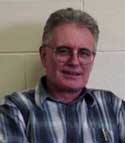
- Current Position:
- Head of Department Environmental Biology and Professor of Invertebrate Conservation
- Qualifications and Experience:
- B.Sc. (Hons) (Bristol)
- Ph.D. (Ghana)
- D.I.C.
- Cert. Ed. (London)
- F.R.E.S.
- Has worked with cocoa research organizations in Ghana and Brazil, with various mining companies throughout Australia, South Africa and Brazil, and with forestry and conservation agencies in Australia. He has been commissioned to write review documents by the Federal government and the World Bank.
- Research Interests:
- Professor Majer is an insect ecologist, with more than 35 years of research experience in Western Australian ecosystems, as well as in Ghana, South Africa and Brazil. Since insects are exceptionally diverse, and are found in almost every situation, Professor Majer's research has involved him in a wide range of issues, including the ecological impacts of urbanisation, impacts of prescribed burning of forests and nature reserves, impacts of habitat fragmentation, and restoration of ecosystems following mining or agriculture. He is also developing ways to use insects as bio-indicators of environmental health. He is currently Head of the Department of Environmental Biology at Curtin.
- Industry/Community links:
- He is now working with Chevron to develop baseline invertebrate inventories on Barrow Island, where a gas liquification plant may be built
- He has worked with Alcoa World Alumina for over 30 years on the role of invertebrates in their restored areas
- He maintains links with the Cocoa Research Institute in Brazil (CEPLAC), where he has been investigating ways of using ants for control of cocoa pests.
- Contact Details:
- email: J.Majer@curtin.edu.au
- phone (Aus): (08) 9266 7041
- phone (Int): +618 9266 7041
Key Research Fields: Molecular Genetics in plant conversation, evolution and ecology (genetic markers, including allozymes, RAPD, AFLP, microsatellite DNA, and DNA sequencing)
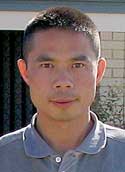
- Current Position:
- Research Fellow
- Qualifications and Experience:
- PhD (Peking University, Beijing, China)
- Postdoc and work experience (Institute of Botany of The Chinese Academy of Sciences, Curtin University, University of Western Australia)
- Research Interests:
- I have particular interests in using molecular genetic markers, including allozymes, RAPD, AFLP, microsatellite DNA, and DNA sequencing, to address issues in plant conservation, evolution and ecology. Specifically, I have been working on projects that employ molecular markers and theoretical models to investigate the pattern and mechanisms of the seed dispersal and pollen flow of plants with contrasting life history and fire-reactions in metapopulation systems, and to explore the dynamics and diversification of genetic variation in those species and ecosystems, with the intent to understand the ecology, evolution and diversification of plant species and ecosystems in fire-prone environments.
- Industry/Community links:
- Institute of Botany of the Chinese Academy of Sciences (Beijing, China)
- Fudan University (Shanghai, China)
- Southern China Botanic Garden (Guangzhou, China)
- Botanic Gardens and Parks Authority (Perth, Australia)
- Contact Details:
- email: thhe@bgpa.wa.gov.au
- phone (Aus): (08) 9480 3642
- phone (Int): +618 9480 3642
Key Research Fields: Community Ecology, Ant Ecology
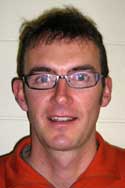
- Current Position:
- Lecturer (Ecology and Resource)
- Research Fellow of Alcoa Centre for Stronger Communities
- Qualifications and Experience:
- PhD (Canterbury University, NZ)
- 16 years postdoctoral experience (Landcare Research NZ, Curtin)
- Research Interests:
- My research interests are varied but predominantly revolve around the impacts of human disturbance on native plant and animal communities (e.g., secondary salinity, fragmentation, mining, introduction of invasive species). My research is focused on systems in the eastern Wheatbelt (Westonia) the Swan Coastal Plain and the Ravensthorpe Range.
- Industry/Community links:
- Shire of Westonia
- Community groups associated with Ravensthorpe Range
- Ecosystem Restoration Group, School of Environmental Biology, Murdoch University
- Department of Environment and Conservation
- Contact Details:
- email: R.Harris@curtin.edu.au
- phone (Aus): (08) 9266 3029
- phone (Int): +618 9266 3029
Dr. Brian Heterick
BSc (Hons), PhD, BA (Hons), Dip. Theol email phoneclick for the full profileclick to hide full profileKey Research Fields: ant systematics, review of Monomorium (Australian and Malagasy fauna) and Iridomyrmex genera
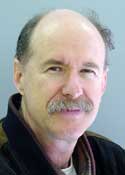
- Current Position:
- Postdoctoral Research Fellow (Entomology)
- Undergraduate Co-ordinator of Invertebrate Fauna
- Qualifications and Experience:
- BSc (Hons) (Uni. of Qld)
- PhD (Uni of Qld)
- BA (Hons) (Uni. of WA)
- Dip. Theol
- Schlinger Fellowship (California Academy of Sciences)
- Postdoctoral Fellowship (CSIRO (CERF))
- Research Interests:
- Primarily ant taxonomy and biodiversity. I have recently submitted for publication through the WA Museum, a monograph on the ant fauna of south-western Australia. My three-year postdoctoral fellowship with CSIRO will involve acting as primary researcher in the revision of the important genus Iridomyrmex. I am also collaborating with the Department of Conservation (DEC) on a major research paper on the ant fauna of the Pilbara region. Previously I have monographed the ant genus Monomorium (Australian and Malagasy fauna). I am also currently assisting other researchers from several institutions who are investigating ants and seed dispersal.
- Industry/Community links:
- Department of Conservation (DEC)
- ALCOA
- Univeristy of Queensland
- WA Department of Agriculture
- Department of Primary Industries (Qld)
- Various industrial companies and organizations, mainly ALCOA, for whom I provide service identifications of ants and occasionally other insects. In terms of community involvement, I am registered by Curtin University as an expert in my field of ant systematics and biodiversity. This has resulted in a number of media interviews re matters of public interest (e.g. pest ants, etc.) Generally these have been radio interviews, but I have also appeared on TV in ‘The Pet Programme’. In Queensland I was interviewed on entomological matters by staff from two newspapers in Queensland (including the scientific reporter for ‘The Courier Mail’). I am also a member of the West Australian Insect Study Society (WAISS), and have spoken at several of their meetings, as well as given talks to various local naturalist clubs and similar organizations.
- Contact Details:
- email: B.Heterick@curtin.edu.au
- phone (Aus): (08) 9266 3598
- phone (Int): +618 9266 3598
Dr. Katherine Baker
BNatRes (Hons), PhD. email phoneclick for the full profileclick to hide full profileKey Research Fields: Seed dormancy and germination, seedbanks, fire ecology, seed dispersal
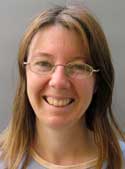
- Current Position:
- Research Assistant/Associate for Byron Lamont
- Qualifications and Experience:
- BNatRes(Hons) (UNE)
- PhD (UWA)
- Research Assistant at the Centre for Mined Land Rehabilitation (UQ 1999-2001)
- Manager of the Northern Territory, Millenium Seedbank Project (2005-2006)
- Research Interests:
-
I’m primarily interested in seed germination and dormancy, particularly in relation to fire. My PhD focused on the germination ecophysiology of south-western Australian fire ephemerals and showed that smoke operates as a germination stimulant in these species. These plants germinate after fire, produce copious seeds, live for only 1-3 years and then persist as a soil seedbank until a subsequent fire.
Seeds did not respond to smoke when freshly collected but did so after a period of burial.
During burial seeds exhibited dormancy cycling whereby dormancy was released during summer and reimposed over winter in response to soil temperature and moisture.
Seeds responded to smoke in autumn which ensures that seeds germinate at the beginning of the wet season when moisture is most likely to be available for seedling establishment.
Presently I am involved in a number of projects, many of which are based in the Eneabba region. 'These include studies on seed dispersal and the effect of fire regimes in natural and rehabilitated vegetation on regeneration and the soil seedbank. I am also examining seed germination and dormancy in a number of species through CEDD small grants.'
-
I’m primarily interested in seed germination and dormancy, particularly in relation to fire. My PhD focused on the germination ecophysiology of south-western Australian fire ephemerals and showed that smoke operates as a germination stimulant in these species. These plants germinate after fire, produce copious seeds, live for only 1-3 years and then persist as a soil seedbank until a subsequent fire.
Seeds did not respond to smoke when freshly collected but did so after a period of burial.
During burial seeds exhibited dormancy cycling whereby dormancy was released during summer and reimposed over winter in response to soil temperature and moisture.
Seeds responded to smoke in autumn which ensures that seeds germinate at the beginning of the wet season when moisture is most likely to be available for seedling establishment.
- Contact Details:
- email: K.S.Baker@curtin.edu.au
- phone (Aus): (08) 9266 3701
- phone (Int): +618 9266 3701
Key Research Fields: cynobacterial blooms, diatoms, biomonitoring, wetlands
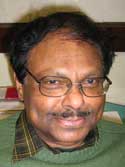
- Current Position:
- Qualifications and Experience:
- BSc
- PhD
- Research Interests:
- Industry/Community links:
- Contact Details:
- email: J.John@curtin.edu.au
- phone (Aus): (08) 9266 7327
- phone (Int): +618 9266 7327
Dr. Grant Wardell-Johnson
BSc, MSc, PhD. email phoneclick for the full profileclick to hide full profileKey Research Fields: Biodiversity conservation, landscape ecology, disturbance and restoration ecology
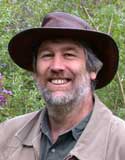
- Current Position:
- Associate Professor (Biodiversity & Climate Change)
- Qualifications and Experience:
- BSc - Forestry. (ANU 1979)
- MSc - Forestry (Oxford 1985)
- PhD - Botany (UWA 1998)
- 29 years experience as a research scientist
- Research Interests:
- Grant’s research interests include biogeographical survey, impact assessment, disturbance, and pattern and scale, particularly in high rainfall mediterranean ecosystems. He seek the integration of ‘Conservation Biology’, Disturbance Ecology’, ‘Restoration Ecology’ and ‘Landscape Ecology’ to achieve more effective conservation outcomes in multi-functional landscapes. His research program is integrated across disciplines, and focused towards the development of ‘Landscape Intelligence’. Thus his program of research involves the integration, analysis, portrayal and evaluation of multiple data forms towards the development of a multi-species, multi-community conservation approach to environmental management. This approach relies on integrative case studies, including projects ranging from local to global scales. HIs emphasis continues to be Mediterranean-climate ecosystems – particularly those in high rainfall areas, although the approaches and tools used are relevant to other systems, and have contributed to the biodiversity assessment and analysis expertise to teams in tropical and subtropical regions.
- Industry/Community links:
- Department of Environment and Conservation (WA)
- Botanic Gardens and Parks Authority (WA)
- University of Queensland
- Parks Victoria
- Vegetation Function Network
- Worsley Alumina
- Rainforest CRC
- Contact Details:
- email: g.wardell-johnson@curtin.edu.au
- phone (Aus): (08) 9266 3702
- phone (Int): +618 9266 3702
Dr. Adam Dunn - Adjunct
BSc, Hons, PhD. email phoneclick for the full profileclick to hide full profileKey Research Fields:Computational Modelling and Anaylsis, Comples Spatial Systems, Weed Propagation Model, and Habitat fragmentation Model
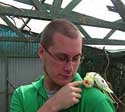
- Current Position:
- Postdoctoral Research Fellow
- Alcoa Foundation’s Sustainability & Conservation Program
- Qualifications and Experience:
- PhD (UWA)
- Research Interests:
- I am a computational scientist with several years of experience in modelling and analysing complex spatial systems. I am currently interested in building ‘generalisable’ models for landscape phenomena such as environmental weed propagation and habitat fragmentation. I implement these models for the specific purpose of advising government and community groups on decisions about conservation of biodiversity.
- Contact Details:
- email: adam.g.dunn@gmail.com
- phone (Aus): (08) 9266 7041
- phone (Int): +618 9266 7041 (Jonathan Majer)
Dr. Aaron Gove - Adjunct
BSc, Hons, PhD. email phoneclick for the full profileclick to hide full profileKey Research Fields: Animal-Plant Interactions, Biological Diversity (Distribution, Formation and Conservation), Landscape Patterns (Connectivity, Dispersal)
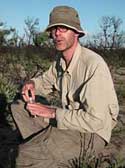
- Current Position:
- Post Doctoral Fellow
- Qualifications and Experience:
- PhD (Curtin)
- 2 year postdoc experience (Curtin)
- Research Interests:
- I am interested in animal-plant interactions, the distribution, formation and conservation of biological diversity, and landscape patterns such as connectivity and dispersal. I am particularly interested in the management of matrix habitats, and the promotion of their habitat value. I am currently examining the role that ant seed dispersal plays in angiosperm diversification, with a focus on species rich south-western Australia, using a variety of tools including GIS and species phylogenies.
- Contact Details:
- email: a.gove@exchange.curtin.edu.au
- phone (Aus): (08) 9266 1726
- phone (Int): +618 9266 1726
Dr. María Calviño-Cancela - Adjunct
BSc, Hons, PhD. email phoneclick for the full profileclick to hide full profileKey Research Fields: Plant-Animal Interations (seed dispersal, plant recruitment, spatial dynamics), Herbivory affecting Seed Dispersal, Plant Biodiversity
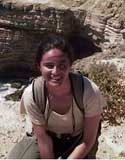
- Current Position:
- Visiting post doctoral fellow
- Qualifications and Experience:
- PhD (University of Vigo)
- 3 years post doc experience.
- Research Interests:
- My research interests are centred on plan-animal interactions, especially on seed dispersal, and how they affect plant recruitment and spatial dynamics of plant populations. Now in SW Australia, I am studying the role of three common herbivores (emus and western grey kangaroos, as native species, and rabbits, as introduced) on seed dispersal of native and introduced plants, aiming to understand their function in the ecosystem and the implications of these interactions for the conservation of plant biodiversity.
- Industry/Community links:
- University of Vigo (Spain)
- Kings Park (WA)
- NC State University (USA)
- Edith Cowan University (WA)
- Mediterranean Institute of Mediterranean Studies (Spain)
- Contact Details:
- email: maria@uvigo.es
- phone (Aus): (08) 9266 7784 (Byron Lamont)
- phone (Int): +618 9266 7784 (Byron Lamont)
Prof. Graciela Metternicht - Adjunct
BSc, Hons, PhD. email phoneclick for the full profileclick to hide full profileKey Research Fields: optical, IR and microwave remote sensing and GIS for mapping and monitoring: agricultural landscapes, rangelands, land degradation, spatial analysis and modelling with emphasis on fuzzy logic and fuzzy sets, soft image classifiers
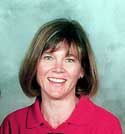
- Current Position:
- Professor of Geospatial Science, Department of Spatial Science, Curtin University (up to June 2007). Head of Discipline and Professor of Geospatial Systems and Environmental Management School of Natural and Built Environments, University of South Australia (UniSA), after June 2007.
- Qualifications and Experience:
- PhD Geography (summa cum laude) (Univ. of Gent, Belgium)
- MSc Geoinformation and map production (ITC, The Netherlands)
- Postgrad Dip Cartography (ITC, The Netherlands)
- BSc Cartography (UNL, Argentina)
- Research Interests:
- Applications of optical, IR and microwave remote sensing and GIS for mapping and monitoring: agricultural landscapes, rangelands, land degradation; spatial analysis and modelling with emphasis on fuzzy logic and fuzzy sets, soft image classifiers. Graciela Metternicht has made significant contributions in the field of production and management of spatial information for land degradation and agriculture-related applications. Professor Metternicht has provided significant leadership on the way in which remote sensing and GIS can be used for the practical solution of problems related to agriculture, vegetation degradation and rural planning. This research developed practical approaches for assessing and monitoring the condition of crops and perennial vegetation using high-resolution airborne video imagery
- Industry/Community links:
- Department Agriculture and Food, Western Australia
- CSIRO Entomology (Brisbane)
- CSIRO ICT (Brisbane)
- SpecTerra Services Pty Ltd
- Landgate (former Department of Land Information
- ETH (Zurich, Switzerland)
- The International Institute for Geo-information Science and Earth Observation (ITC, The Netherlands)
- Contact Details:
- email: M.Parsons@curtin.edu.au (Michael Parsons)
- phone (Aus): (08) 9266 7907 (Michael Parsons)
- phone (Int): +618 9266 7907 (Michael Parsons)


